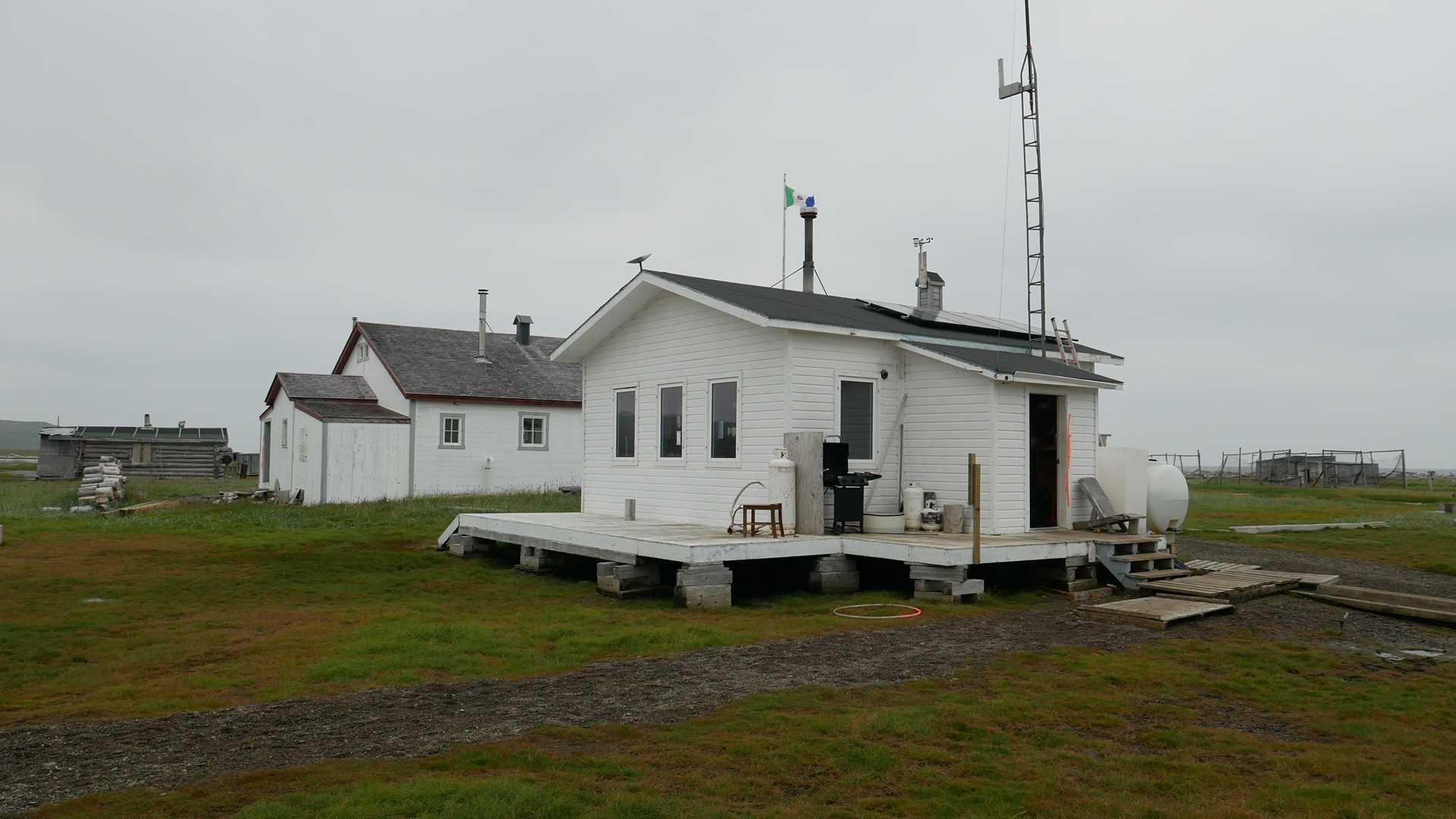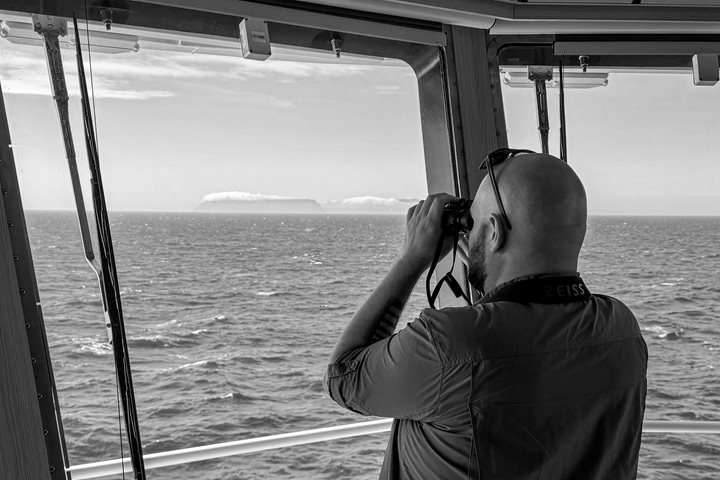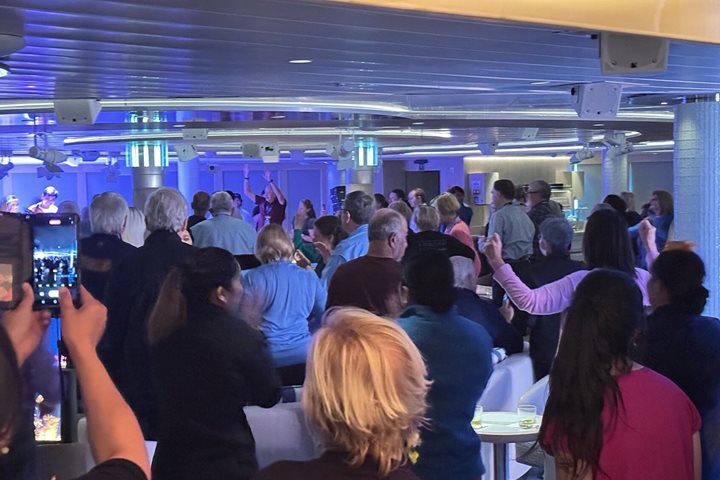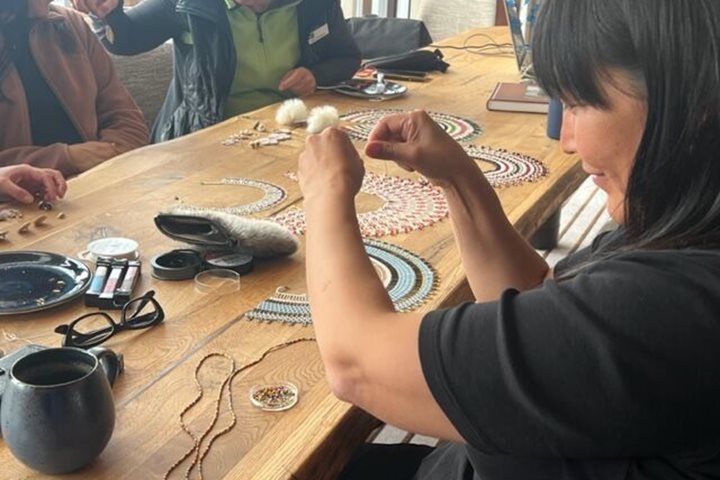Herschel Island, Yukon Territory, Canada is ground zero for Arctic climate change. We arrived early in the morning with overcast skies and temperatures in the 50s (Fahrenheit). The island was a major industrial whaling outpost in the late 19th and early 20th centuries, and the whaling station is part of a major territorial park today. The station and the island itself are undergoing rapid, climate-driven changes.
We were greeted by a team of park rangers, visiting scientists, and interns who showed us around and answered our questions. The buildings at the station were built near sea level to facilitate easy access for whaling and supply ships. Today, sea level rise and land subsidence are combining to threaten many of the structures. In response, park managers have been working to raise the structures to protect them from the encroaching sea.
The oldest structure in the entire Yukon Territory is only 130 years old and is found on the island. A heritage preservation team was scheduled to fly in today to begin work to elevate it, but they were prevented from flying by the wildfire smoke in the south.
After lunch back on National Geographic Resolution, guests went hiking along the shore and up onto the tundra to see the comparatively lush Low Arctic tundra and the effects of thawing on what was once permafrost, or permanently frozen ground. We noticed that the water along the shore was very muddy where the melting permafrost drained silt and mud into the water. Once stable ground surfaces covered with willows and other tundra plants now appear torn as the ground pulls apart and slowly – or not so slowly – slides downhill. This in turn exposes the underlying ice to sun and warm air, leading to more melting and more collapse. Researchers across the Arctic are drilling holes into the permafrost and inserting instruments to monitor the ground temperature. Such efforts help predict how soon the threshold of melting and collapse will be reached. Across the Arctic, the news is not good.
Text and photos by: Daniel Odess and Maria Huntsaar







